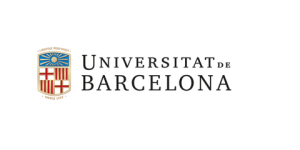EcoSummit 2016
Ecological Sustainability: Engineering Change
29 August – 1 September 2016 | Le Corum, Montpellier, France
Early registration deadline is 29 April 2016.
Side events will also take place during EcoSummit 2016. These smaller events will comprise workshops, training sessions, round tables, world cafés and general discussions. More info »
The 5th International EcoSummit Congress, EcoSummit 2016 – Ecological Sustainability: Engineering Change, will take place at The Corum Convention Centre, Montpellier from 29 August – 1 September 2016. This conference series was founded in 1996 in Copenhagen, as a forum to meet the demands of scientists working in several new ecological disciplines, and who required a better understanding of the concepts and methods for a holistic use of ecology in environmental management. Since 1996, EcoSummit has been taken around the world (Canada and China), with EcoSummit 2012 hosting 1600 participants from 75 countries in Columbus, Ohio, USA.
EcoSummit 2016 will centre on the ecology of terrestrial ecosystems and all habitats that are integrated within those ecosystems, including river networks, wetlands and coastlines. Focus will be placed on fragile ecosystems that are more likely to suffer the consequences of climate change and anthropogenic pressure. However, in the current context of an increasing world population, changes in social habit (increasing world consumerism) and climate change, it is evident that agriculture is being intensified but with a growing awareness of the need to preserve and use sustainably world resources. Therefore, we will also address how terrestrial restoration can be carried out when the massive demand for food results in fragile ecosystems, forests and marginal lands being turned over to agriculture. The central and fundamental topics of EcoSummit 2016 are as follows:
Topics
- Agro-ecology
- Anthropogenic pressure
- Arid lands and desertification
- Biodiversity and biological conservation
- Biological invasions
- Climate change
- Disturbance ecology
- Ecohydrology
- Ecological complexity
- Ecological economics
- Ecological engineering
- Ecological indicators
- Ecological intensification
- Ecological modelling
- Ecosystem creation and restoration
- Ecosystem health
- Ecosystem services
- Ecotoxicology
- Environmental policy
- Fragile ecosystems and hotspot management
- Integrating socio-economics and ecology
- Sustainability and resilience
- Watershed/River catchment management
For complete information visit .


